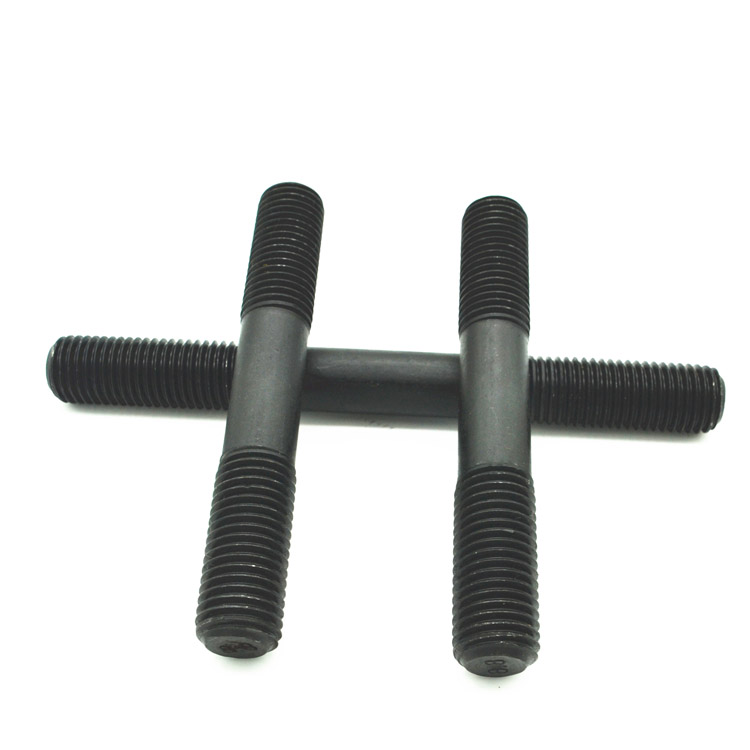ASTM Flange Nuts Suppliers and Manufacturers for Industrial Applications and Specifications
Nov . 11, 2024 01:03 Back to list
ASTM Flange Nuts Suppliers and Manufacturers for Industrial Applications and Specifications
Understanding ASTM Flange Nuts Manufacturers and Their Importance
Flange nuts are an essential component in the world of fasteners, widely utilized in various industries for their superior load distribution and resistance to loosening. When it comes to sourcing quality flange nuts, understanding the ASTM (American Society for Testing and Materials) standards is crucial. This article delves into the significance of ASTM flange nuts, the role of manufacturers, and how these components contribute to robust and reliable engineering solutions.
What Are ASTM Flange Nuts?
ASTM flange nuts are a specific type of nut that features a wide, circular flange at one end. This flange acts as a built-in washer, providing a larger bearing surface that helps to distribute the load of the nut over a larger area. This design can reduce the risk of stripping the material being fastened and can also mitigate the potential for loosening due to vibration and other forces.
The ASTM standards ensure that the materials and dimensions of flange nuts adhere to strict specifications, which guarantee their reliability and performance in critical applications. The most commonly referenced ASTM standards for flange nuts include ASTM A194 (which covers nuts for bolts used in high-pressure and high-temperature service) and ASTM A325 (focused on structural bolts). These standards provide guidelines for material composition, tensile strength, hardness, and more, ensuring that the flange nuts meet the necessary performance criteria.
The Role of Manufacturers
Manufacturers play a pivotal role in the production of ASTM flange nuts. They must adhere strictly to the guidelines laid out in the ASTM standards to ensure their products are reliable and capable of performing in demanding conditions. High-quality manufacturers invest in advanced machinery and technology to produce flange nuts that meet or exceed these standards.
1. Quality Assurance Leading manufacturers implement rigorous quality control measures throughout the production process. This includes testing materials for composition and strength, inspecting finished products for defects, and conducting performance tests under various conditions. Such quality assurance ensures that customers receive products that can withstand real-world applications.
2. Material Selection The choice of materials in the manufacture of ASTM flange nuts is crucial. Common materials include carbon steel, alloy steel, and stainless steel, each selected for its specific mechanical properties. Manufacturers must consider the environment in which the nuts will be used, such as exposure to corrosive substances or extreme temperatures, to choose the appropriate material.
astm flange nuts manufacturers

3. Customization Not all applications are the same, and sometimes standard flange nuts will not meet specific requirements. Reputable manufacturers offer customization options, allowing clients to specify dimensions, materials, and coatings to suit particular needs. This flexibility is essential for industries such as automotive, aerospace, and construction, where precision is critical.
4. Innovation The fastener industry is continually evolving with new technologies and materials. Leading manufacturers stay at the forefront of these advancements, incorporating innovations such as advanced coating technologies to enhance corrosion resistance or improved manufacturing techniques that reduce costs and improve performance.
Importance of ASTM Flange Nuts in Industry
The use of ASTM flange nuts is paramount in various sectors. In construction, for example, they are used to secure steel beams and other structural components. In automotive assembly, they hold critical parts in place against vibration and stress. The aerospace industry relies on them for engine components and other high-stress applications where safety is a priority.
They offer several benefits
- Increased Load Distribution The flange design allows for better weight distribution, reducing stress on the connected components and preventing damage or failure. - Resistance to Vibration The wider bearing surface aids in keeping the nut secure, even in environments where vibration is prevalent. - Ease of Use Flange nuts can be installed and removed more easily than standard nuts, saving time and labor in assembly processes.
Conclusion
In conclusion, ASTM flange nuts play a vital role in ensuring the integrity and reliability of various engineering applications. Manufacturers of these critical components must adhere to stringent ASTM standards to ensure they meet the necessary quality and performance criteria. By understanding the significance of these fasteners and the capabilities of their manufacturers, engineers and procurement specialists can make informed decisions that enhance the safety and effectiveness of their projects. Selecting the right flange nuts is not just a technical requirement; it is an investment in the durability and longevity of the finished product.
Latest news
-
High-Quality Panel Stud Bolt Reliable Panel Stud Bolt Factory & Suppliers
NewsJul.08,2025
-
High-Precision Fine Thread Locknuts Manufacturer & Supplier Custom Solutions
NewsJul.08,2025
-
PH Imperial Stud Bolt – High Strength Fasteners from Leading Supplier & Factory
NewsJul.07,2025
-
High-Quality Allen Wrench Bolts Leading Factory, Company & Suppliers
NewsJul.07,2025
-
Wholesale Ball Stud Bolt - High Quality Supplier & Factory Price Reliable Wholesale Ball Stud Bolt Company
NewsJul.06,2025
-
High-Strength Alloy Bolts Manufacturer & Supplier Quality Alloy Fasteners Factory
NewsJul.06,2025
